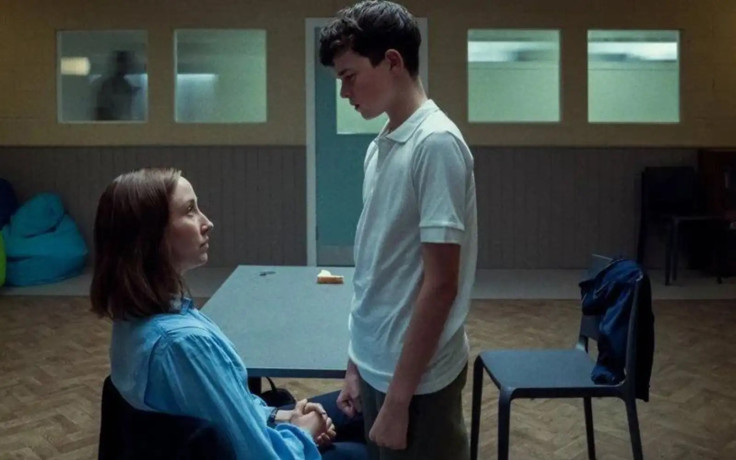Netflix's Adolescence To Be Shown In British Schools To Combat Misogyny And Teen Violence
RHSE, which is set to launch before the end of the academic year, focuses on combating harmful narratives spread on social media and promoting healthy relationships.

Netflix's hard-hitting drama Adolescence is set to be shown in secondary schools across Britain as part of a bold new initiative aimed at tackling toxic masculinity, misogyny and the impact of online radicalisation on young people. The gripping four-part series—which follows a teenage boy's descent into violence under the influence of extremist online content—has sparked intense national debate, and will now be used in classrooms to support students' emotional development and promote healthier relationships.
Upon its release, Adolescence became the first streaming show to top weekly viewership charts, drawing in over 66.3 million views globally and attracting 6.45 million viewers for its first episode alone. The show's candid portrayal of a family torn apart by online influence has struck a chord with parents, educators and politicians alike, prompting urgent conversations about how best to support young boys in an increasingly digital world.
Prime Minister and Creators Back Classroom Integration
The decision to implement Adolescence into the school curriculum was announced following a meeting at Downing Street between Prime Minister Keir Starmer and the show's creators. Starmer, who watched the show with his own teenage children, admitted it was 'really hard' to sit through—but emphasised its significance.
'As a father, watching this show with my teenage son and daughter, I can tell you – it hit home hard,' he said. 'As I see from my own children, openly talking about changes in how they communicate, the content they're seeing, and exploring the conversations they're having with their peers is vital.'
Director Philip Barantini celebrated the news on social media, posting: 'We did it!!' Co-writer Jack Thorne echoed the sentiment, expressing hope that the show would 'provoke a conversation' among students. According to DailyMail.com, Starmer's office stated that the initiative aims to help students 'better understand the impact of misogyny, the dangers of online radicalisation, and the importance of healthy relationships.'
Integrated Into Updated Sex and Relationships Curriculum
The series will be used to supplement the government's revised relationships, health, and sex education (RHSE) guidance, an extension of the mandatory RSE curriculum introduced in 2020. According to The Times, the new guidance will encourage discussions on boundary-setting, emotional resilience and respectful behaviour from an early age, progressing into more complex topics as students grow older.
An insider told the publication that RHSE would be instrumental in helping schools 'tackle harmful behaviour and ensure that misogyny is stamped out and not allowed to proliferate'.
Plot That Reflects Harsh Realities
Adolescence follows the fictional Miller family as their world unravels after 13-year-old Jamie is arrested for fatally stabbing a female classmate. Through its exploration of social media, peer pressure, and the influence of figures like Andrew Tate, the drama portrays the insidious ways online ideologies can shape a young boy's world. The series closes with Jamie's parents grappling with the question many families now ask: where did we go wrong?
Starring newcomer Owen Cooper as Jamie and BAFTA-winner Stephen Graham as his father, the series has been widely praised for its unflinching realism and emotional depth. Its success has already led to classroom discussions, long before its formal inclusion in the curriculum.
Teachers and Campaigners Respond
The show's influence comes amid growing concern among educators about rising misogyny in schools. Speaking to The Independent, Clive Hill, a teacher at Meden School in Nottinghamshire, said: 'We've definitely seen a rise in the need to tackle those sorts of behaviours. That's across several schools and the sector as a whole.'
Hill, whose daughter faced misogyny at a mixed sixth form, believes the problem is worsened by a shortage of male role models in schools. The proportion of male secondary school teachers is at a record low—just 35%—according to The Times.
'I think to start off with the narrative around what positive masculinity is has got to come from males,' Hill said. 'The narrative that we need to portray to young men is that they are the solution, not the problem.'
Will Adolphy, co-founder of M-Path, a group offering masculinity-focused programmes in schools, agrees. 'That TV show really shows just how important it is that we engage boys and men,' he told The Independent. 'Otherwise, we might lose them to isolation and the manosphere and violence, gender-based violence.'
Adolphy revealed that teachers are already referencing the show and has even made it required viewing for his team.
A Cultural Shift Towards Education and Empathy
The government's move to integrate Adolescence into classroom discussions marks a pivotal moment in the effort to combat toxic masculinity and misogynistic ideologies before they take root. It reflects a growing awareness that education must evolve to address the digital environments in which young people now exist.
By leveraging media that resonates with teens, educators hope to promote emotional intelligence, empathy, and respectful relationships—empowering the next generation to challenge harmful narratives before they lead to real-world consequences.
Watching Adolescence was a wake-up call for many across Britain, sparking nationwide conversations about gender, violence and vulnerability. Its incorporation into the school curriculum is not just a reactive measure, but a proactive step toward fostering a more respectful and inclusive future.
© Copyright IBTimes 2025. All rights reserved.





















